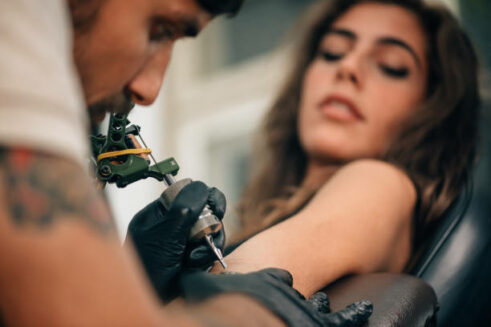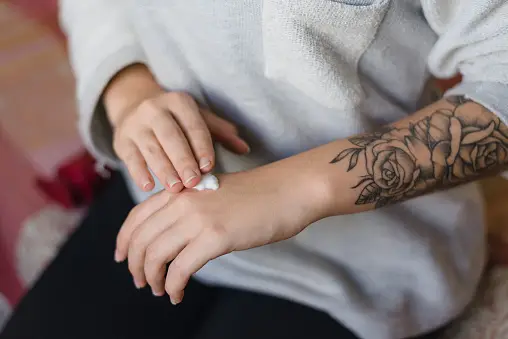Embarking on the transformative journey of getting a tattoo is an artful exploration of self-expression. However, for those with sensitive skin, this endeavor comes with its own set of challenges. The choice of the right numbing cream becomes not just a matter of preference but a crucial factor in ensuring a comfortable and pain-free tattooing experience. In this comprehensive guide, we delve into the intricacies of tattoo numbing creams tailored for sensitive skin, unraveling the impact of sensitivity on the tattooing process.
Understanding Sensitive Skin
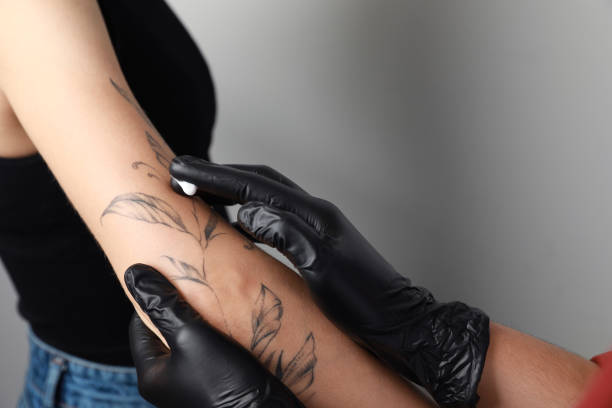
Definition of Sensitive Skin
Sensitive skin is a characteristic that signifies heightened reactivity to external stimuli. Individuals with sensitive skin often experience sensations more acutely than others, making the tattooing experience a delicate affair.
Characteristics and Common Issues of Sensitive Skin
Sensitive skin manifests through a range of characteristics, including redness, itching, and a tendency to develop rashes. Common issues involve reactions to various skincare products, environmental factors, and, notably, the tattooing process.
How Sensitive Skin Reacts to Tattoos
When ink penetrates the skin during tattooing, the body’s response can be amplified for those with sensitive skin. This heightened reactivity may lead to increased discomfort and prolonged recovery periods.
The Benefits of Using Numbing Cream
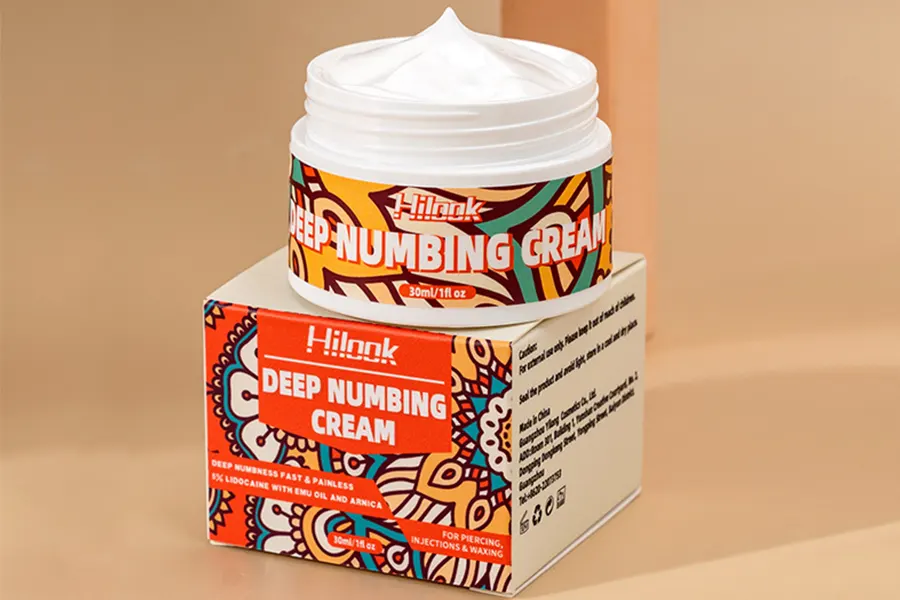
Minimizing Pain and Discomfort
The primary advantage of utilizing a numbing cream for sensitive skin is the minimization of pain and discomfort during the tattooing process. This is not just a luxury but a necessity for individuals whose skin tends to react more intensely.
Allowing Longer Tattoo Sessions
Numbing creams extend beyond immediate relief; they allow for longer tattoo sessions, enabling the creation of intricate and detailed designs without subjecting the individual to prolonged discomfort.
Reducing Inflammation and Swelling Post-Tattoo
Sensitive skin often responds with inflammation and swelling post-tattoo. Numbing creams, when carefully chosen, contribute to reducing these side effects, facilitating a smoother and quicker recovery.
Factors to Consider When Choosing a Tattoo Numbing Cream
Ingredients to Avoid for Sensitive Skin
Certain ingredients, while effective for some, can trigger adverse reactions in individuals with sensitive skin. A meticulous examination of the numbing cream’s composition is crucial to avoid potential irritants.
Non-Irritating and Hypoallergenic Formulas
Prioritizing numbing creams with non-irritating and hypoallergenic formulas is essential. This ensures that the skin’s delicate balance is maintained, minimizing the risk of adverse reactions.
Recommended Numbing Agents for Sensitive Skin

Lidocaine, with its proven numbing properties, often headlines the list of recommended agents for sensitive skin. Its effectiveness, coupled with minimal irritation potential, makes it a preferred choice. Plenty of tattoo artists customize lidocaine cream for tattoos to bring a painless tattoo experience to their customers.
Science & Versatile Applications Behind the Numbing Cream
The safe numbing cream’s power lies in its active ingredients, carefully selected for their numbing effect. These substances work together to desensitize the nerves, minimizing pain during the procedure. Dermatologically tested and FDA-approved, a safe numbing cream ensures both safety and effectiveness for a wide range of personal care procedures.
Assured Safety for Ear Piercing
Ear piercing is a common procedure that can cause anxiety due to the fear of pain and potential infections. However, with the application of the ear numbing cream for ear piercing, these concerns can be put to rest. By numbing the earlobe beforehand, the cream prepares it for piercing, making the process virtually pain-free.
Achieving Smooth Waxing with Numbing Cream
Bikini waxing is notorious for the discomfort it can cause, but bikini wax numbing cream offers a solution. By numbing the area being waxed, the cream minimizes pain and discomfort, allowing for a smoother and more enjoyable waxing experience.
Enhancing the Lip Filling Experience
Lip filler procedures can be daunting due to the potential pain involved. However, with the application of the lip filler numbing cream, the process becomes much more manageable. This article explores the benefits of using the numbing cream for pain management during lip filler procedures, along with recommended application techniques for effective numbing.
Using Numbing Cream for Sensitive Skin Tattoos
Individuals with sensitive skin often face challenges when getting tattoos, as the process can be extremely uncomfortable. However, the safety numbing cream offers relief by minimizing the discomfort associated with tattooing on sensitive skin.
Numbing Cream for Various Skincare Procedures
The versatility of the numbing cream extends beyond the procedures already mentioned. This article highlights additional personal care routines that can benefit from the use of numbing creams, such as dermal fillers, microneedling, and laser hair removal. Regardless of the procedure, the numbing cream proves to be effective in minimizing pain and enhancing the overall experience.
Potential Side Effects and Risks
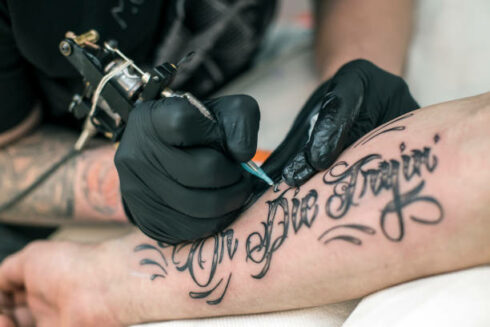
Allergic Reactions and Skin Irritations
Sensitive skin is prone to allergic reactions and irritations. Numbing creams, if not chosen wisely, can exacerbate these issues. Vigilance and patch testing are crucial in mitigating these risks.
Interference with Tattoo Ink Absorption
Certain numbing agents may interfere with the absorption of tattoo ink. Understanding this potential risk is vital for both the effectiveness of the tattoo and the skin’s reaction post-application.
Consultation with a Dermatologist Before Use
Prior to using any numbing cream, especially for individuals with sensitive skin, consultation with a dermatologist is strongly recommended. Their expertise ensures a personalized approach and minimizes potential risks.
Recommended Tattoo Numbing Creams for Sensitive Skin
Top-Rated Numbing Creams Specifically Designed for Sensitive Skin
In the realm of numbing creams, specific formulations cater to the needs of sensitive skin. Exploring these top-rated options, backed by reviews and customer experiences, becomes a crucial step in making an informed choice.
Alternatives to Numbing Creams for Sensitive Skin

Natural Remedies for Reducing Pain and Discomfort
For those wary of numbing creams, natural remedies offer an alternative path. From aloe vera to chamomile, exploring these options becomes a holistic approach to pain reduction.
Distraction Techniques During the Tattooing Process
Redirecting the focus during tattooing can alleviate the perception of pain. Engaging in distraction techniques, such as listening to music or practicing controlled breathing, becomes a valuable strategy.
Discussing Options with the Tattoo Artist
Open communication with the tattoo artist is key. Discussing sensitivity, preferences, and potential alternatives ensures a collaborative and accommodating tattooing experience.
Precautions and Important Considerations

Consulting with a Healthcare Professional or Dermatologist
A proactive approach involves consulting with a healthcare professional or dermatologist before embarking on the numbing cream journey. Their insights guide individuals with sensitive skin toward the most suitable options.
Following the Instructions Provided by the Numbing Cream Manufacturer
Strict adherence to the manufacturer’s instructions is non-negotiable. From application guidelines to recommended dosages, following these instructions ensures the safe and effective use of numbing creams.
Being Aware of Potential Drug Interactions
For individuals on medications, awareness of potential drug interactions is vital. A thorough understanding of the numbing cream’s compatibility with existing medications prevents complications.
FAQs About Tattoo Numbing Cream for Sensitive Skin

1. Can Anyone Use Numbing Cream for Tattoos?
The eligibility for numbing cream use is a common query. Addressing factors that influence eligibility helps individuals make informed decisions based on their unique circumstances.
2. How Long Does the Numbing Effect Last?
Understanding the duration of the numbing effect aids in planning the tattooing process. While it varies among individuals, general insights provide valuable expectations.
3. What Can Be Done if an Allergic Reaction Occurs?
In the unfortunate event of an allergic reaction, knowing the immediate steps to take becomes crucial. Quick and informed responses mitigate potential complications.
Conclusion
As we conclude this exploration of tattoo numbing cream for sensitive skin, the resounding theme is the significance of choice. The right numbing cream transforms the tattooing experience from potentially daunting to comfortably empowering. Encouraging individuals to explore options and find the numbing cream that aligns with their needs becomes a pivotal message of empowerment.


